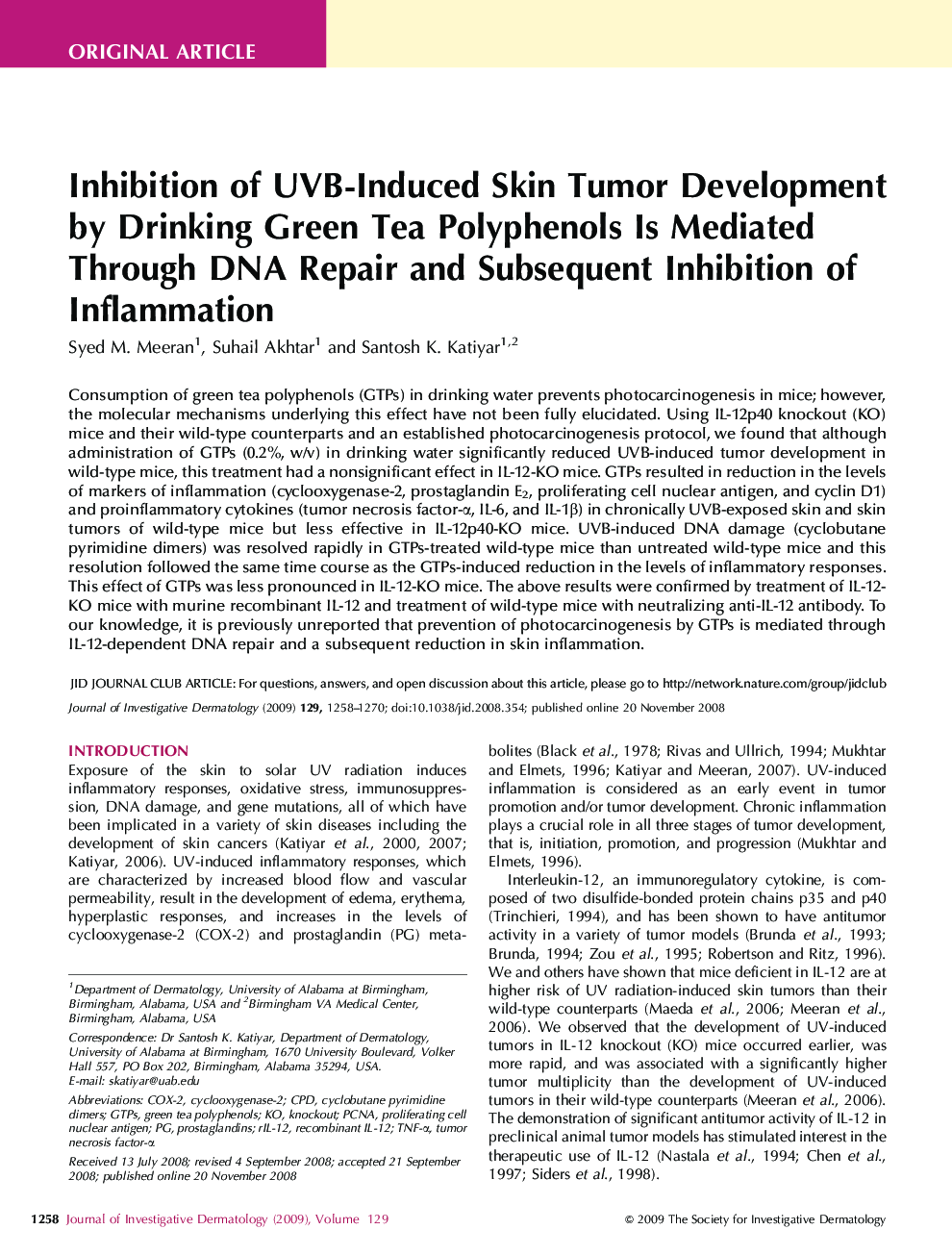| Article ID | Journal | Published Year | Pages | File Type |
|---|---|---|---|---|
| 3217052 | Journal of Investigative Dermatology | 2009 | 13 Pages |
Consumption of green tea polyphenols (GTPs) in drinking water prevents photocarcinogenesis in mice; however, the molecular mechanisms underlying this effect have not been fully elucidated. Using IL-12p40 knockout (KO) mice and their wild-type counterparts and an established photocarcinogenesis protocol, we found that although administration of GTPs (0.2%, w/v) in drinking water significantly reduced UVB-induced tumor development in wild-type mice, this treatment had a nonsignificant effect in IL-12-KO mice. GTPs resulted in reduction in the levels of markers of inflammation (cyclooxygenase-2, prostaglandin E2, proliferating cell nuclear antigen, and cyclin D1) and proinflammatory cytokines (tumor necrosis factor-α, IL-6, and IL-1β) in chronically UVB-exposed skin and skin tumors of wild-type mice but less effective in IL-12p40-KO mice. UVB-induced DNA damage (cyclobutane pyrimidine dimers) was resolved rapidly in GTPs-treated wild-type mice than untreated wild-type mice and this resolution followed the same time course as the GTPs-induced reduction in the levels of inflammatory responses. This effect of GTPs was less pronounced in IL-12-KO mice. The above results were confirmed by treatment of IL-12-KO mice with murine recombinant IL-12 and treatment of wild-type mice with neutralizing anti-IL-12 antibody. To our knowledge, it is previously unreported that prevention of photocarcinogenesis by GTPs is mediated through IL-12-dependent DNA repair and a subsequent reduction in skin inflammation.JID JOURNAL CLUB ARTICLE: For questions, answers, and open discussion about this article please go to http://network.nature.com/group/jidclub
